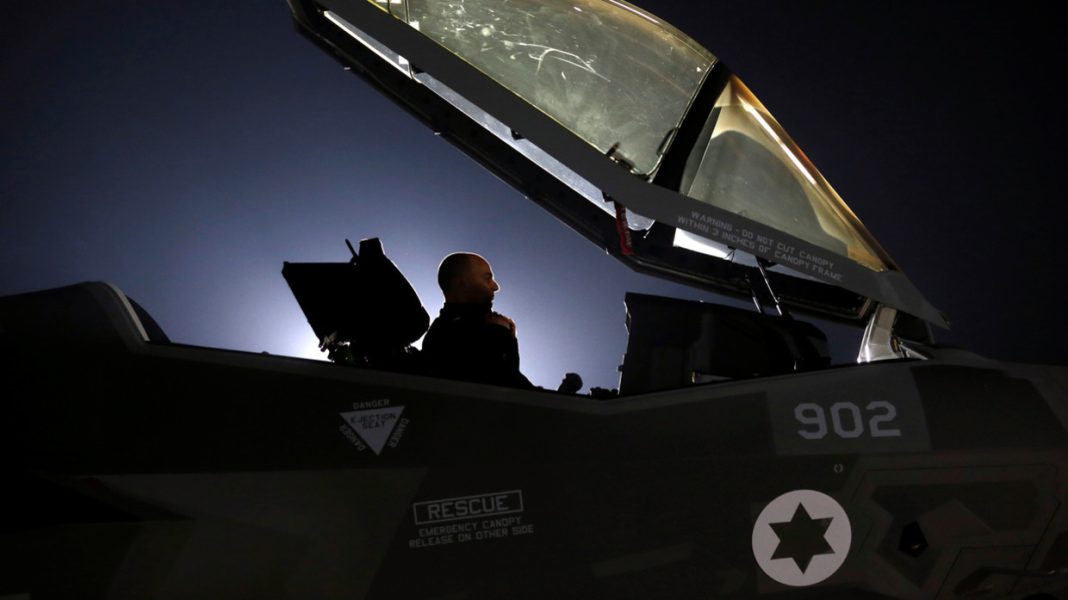The Israeli military said on Sunday its jets bombed weapons depots and infrastructure belonging to Hezbollah in Bekaa Valley in eastern Lebanon, in Shabriha and Burj al-Shemali near the southern city of Tyre, and the villages of Kfar Kila, Rab el-Thalathine, Khiam and Tayr Harfa.
Israel’s Foreign Ministry on Sunday blamed Hezbollah for the rocket attack on a football ground that killed 12 people.
“Saturday’s massacre constitutes the crossing of all red lines by Hezbollah. This is not an army fighting another army, rather it is a terrorist organisation deliberately shooting at civilians,” the ministry said in a statement.
Hezbollah has “categorically denied” responsibility for the attack. There have been unconfirmed claims that a failed Israeli interceptor missile may have caused the incident.
Iran, Hezbollah’s regional ally, warned Israel against any “new adventure concerning Lebanon” using the Majdal Shams incident as an “excuse”.
“After 10 months of mass killing in the Gaza Strip and mass murder of Palestinian children and women, the apartheid Israeli regime is trying to distract public opinion and global attention from its wide-ranging crimes in Palestine using a fabricated scenario,” Iranian Ministry of Foreign Affairs spokesman Nasser Kanaani said in a statement on Sunday, adding that Israel will be responsible for any moves that will further destabilise the region.
United States Secretary of State Antony Blinken stated there was “every indication” that Hezbollah was behind the rocket strike, renewing Washington’s backing for “Israel’s right to defend its citizens from terrorist attacks”.
Speaking at a news conference in Tokyo alongside the US Defense Secretary Lloyd Austin on Sunday, he said the US does not want to see the conflict escalate following the Majdal Shams incident.
“We are determined to bring the Gaza conflict to a close. It’s gone on for far too long. It’s cost far too many lives. We want to see Israelis, we want to see Palestinians, we want to see Lebanese live free from the threat of conflict and violence,” Blinken continued, adding that the US is maintaining contact with the Israeli government.
In a video message from the site of the attack on Sunday morning, Israeli military chief Herzi Halevi reiterated the claim that an Iranian-made Falaq rocket carrying a 53kg (116 pounds) warhead hit the football field.
“This is a Hezbollah rocket. And whoever fires such a rocket into an urban area wants to kill civilians, wants to kill children,” he stated, adding that the Israeli military is “increasing our readiness for the next stage of fighting in the north” as it keeps attacking the Gaza Strip to deadly effect.
He and other commanders met Druze leaders and community members in the area.
The United Nations, the US and the European Union condemned the attack. The UN and the EU urged all parties to exercise “restraint” to prevent an all-out war, with the 27-member bloc’s foreign policy chief Josep Borrell calling for an “independent international investigation”.
More than 350 people, including about 100 civilians have been killed in repeated Israeli attacks on Lebanon since the start of the war on Gaza, according to the UN. Israeli officials say more than 30 people, including 10 civilians, have been killed in attacks originating from Lebanon.
Lebanese Foreign Minister Abdallah Bou Habib has stated a flurry of diplomatic activity is under way to contain an expected Israeli response against Hezbollah.
The United States, France and others were trying to prevent a regional conflict, he said in an interview with local broadcaster al-Jadeed.
“Israel will escalate in a limited way and Hezbollah will respond in a limited way … These are the assurances we’ve received,” Bou Habib added.
Lebanese Prime Minister Najib Mikati has also announced in a statement that “talks are ongoing with international, European and Arab sides to protect Lebanon and ward off dangers”.
